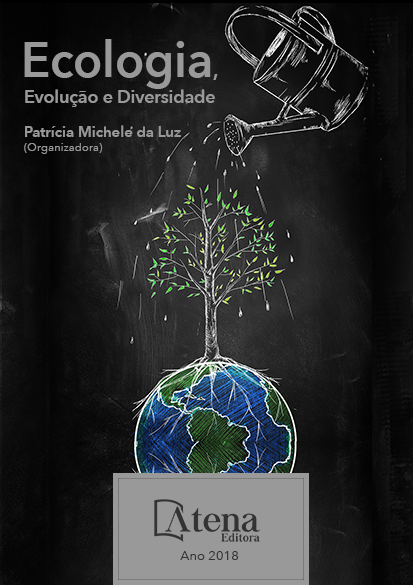
DIVERSIDADE DE FITOPLÂNCTON EM HABITATS AQUÁTICOS E CONTEÚDO ESTOMACAL DE LARVAS DE Anopheles spp. (DIPTERA, CULICIDAE) EM MANAUS, AMAZONAS
Atualmente a região Amazônica tem sido alvo de mudanças causadas pelo homem que acabam criando novos hábitats aquáticos para mosquitos do gênero Anopheles, como por exemplo: tanques de piscicultura, barragens e poças de olaria. A fase aquática se alimenta principalmente de detritos e microalgas presentes nos criadouros, e essas algas servem tanto para suporte nutricional das larvas quanto para oxigenação do ambiente aquático. Sendo assim, o objetivo deste estudo foi conhecer a diversidade de fitoplâncton presente em criadouros naturais e artificiais e relacionar com a encontrada no conteúdo estomacal das larvas de anofelinos. As coletas foram realizadas em criadouros naturais, transição e alterados, localizados na zona periurbana de Manaus. O fitoplâncton foi coletado com rede de coleta na borda do criadouro e o material fixado em solução Transeau 1:1, analisado de forma qualitativa em microscópio. As larvas de anofelinos foram coletadas com concha entomológica, fixadas em solução Macgregor e identificadas utilizando chaves dicotômicas específicas. Foram identificados oito espécies de anofelinos, com maior abundância de A. triannulatus, A. darlingi e A. nuneztovari, onde a comunidade de fitoplâncton foi maior nos criadouros mais naturais, e o grupo Chlorophyta apresentou a maior freqüência em ambos. Foi identificado agrupamento de criadouros de acordo com a similaridade e distribuição das espécies (R= 0,9353) nessas três classificações (natural, transição, alterado). A. triannulatus foi associado com ambientes naturais, A. nuneztovari em ambientes alterados e espécies como A. darlingi em criadouros em transição, este último contendo o principal vetor da malária na Amazônia.
DIVERSIDADE DE FITOPLÂNCTON EM HABITATS AQUÁTICOS E CONTEÚDO ESTOMACAL DE LARVAS DE Anopheles spp. (DIPTERA, CULICIDAE) EM MANAUS, AMAZONAS
-
DOI: Atena
-
Palavras-chave: mosquitos, dieta alimentar, anofelinos, criadouros, algas.
-
Keywords: mosquitoes, diet, anophelines, breeding sites, algae.
-
Abstract:
Currently, the Amazon region has been the target of man-made changes that end up creating new aquatic habitats for mosquitoes of the genus Anopheles, such as fish ponds, dams and pottery ponds. The aquatic phase feeds mainly on debris and microalgae present in breeding sites, and these algae serve both for nutritional support of larvae and for oxygenation of the aquatic environment. Therefore, the objective of this study was to know the phytoplankton diversity present in natural and artificial breeding sites and to correlate with that found in the stomach contents of anopheline larvae. The collections were carried out in natural, transitional and altered breeding sites located in the periurban zone of Manaus. The phytoplankton was collected with a collection net at the edge of the breeder and the material fixed in a 1: 1 Transeau solution, analyzed qualitatively under a microscope. The larvae of anophelines were collected with entomological shell, fixed in Macgregor solution and identified using specific dichotomous keys. Eight species of anophelines were identified, with greater abundance of A. triannulatus, A. darlingi and A. nuneztovari, where the phytoplankton community was larger in the more natural breeding sites, and the Chlorophyta group presented the highest frequency in both. Breeding grouping was identified according to species similarity and distribution (R = 0.9353) in these three classifications (natural, transition, altered). A. triannulatus was associated with natural environments, A. nuneztovari in altered environments and A. darlingi species in breeding sites in transition, the latter containing the main vector of malaria in Amazonia.
-
Número de páginas: 15
- Adriano Nobre Arcos


